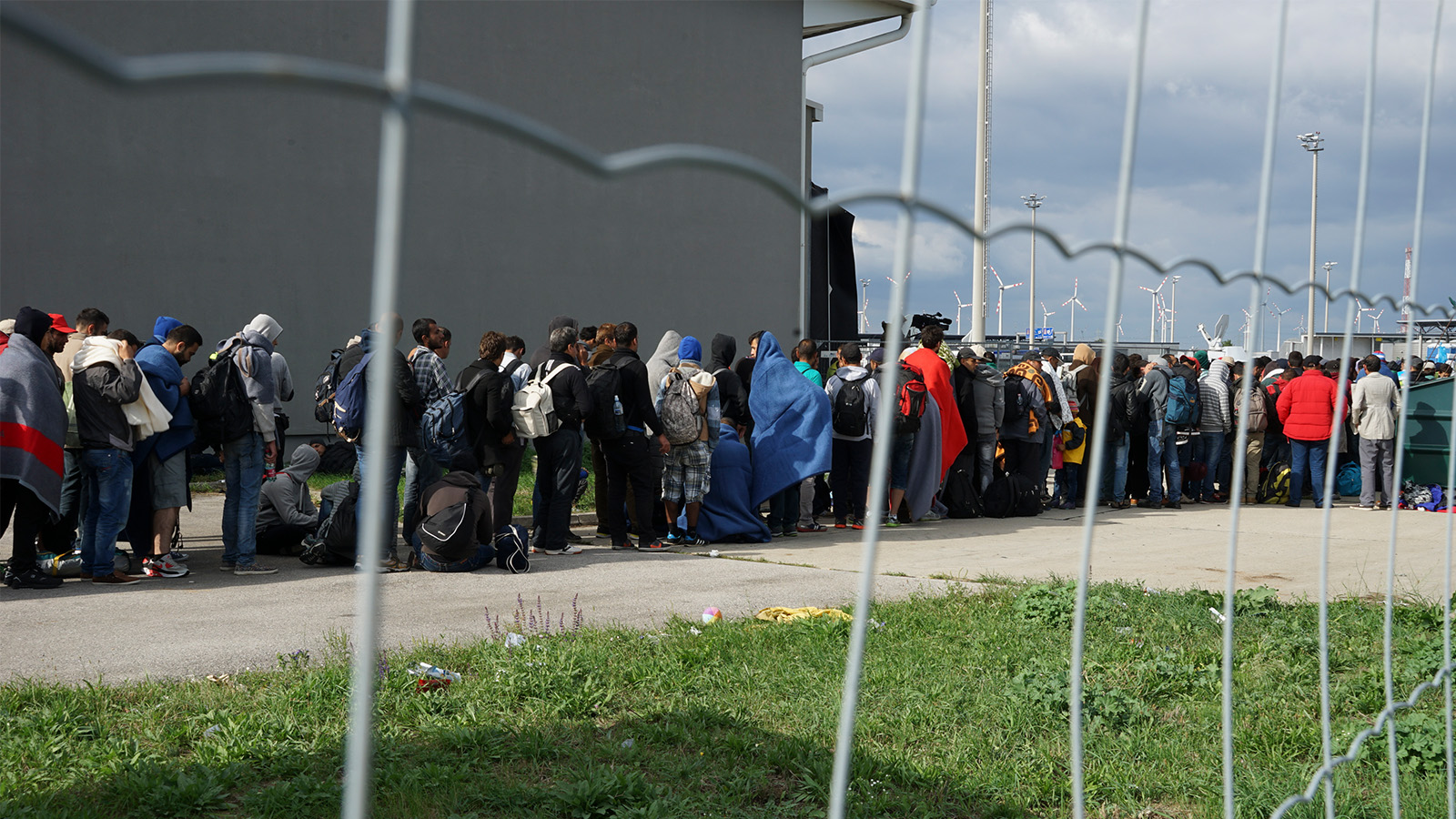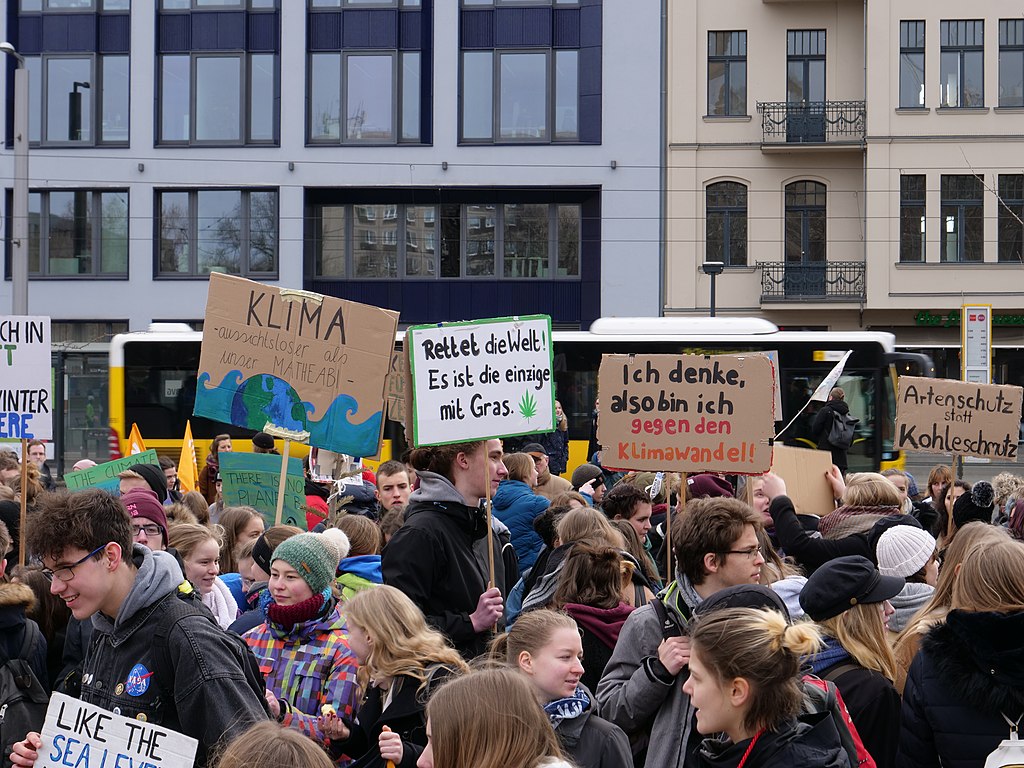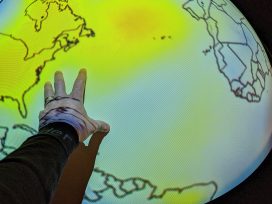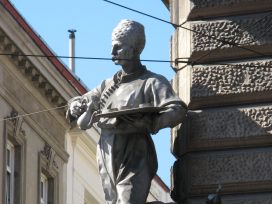Il Mulino: Let’s start with a few key issues in the current political landscape. In recent years, immigration has been central in electoral campaigns and the public debate in many of the world’s richest democracies. The left and right seem divided over how to tackle the question, but it is commonly seen as a ‘problem’ that needs to be contained. Why has immigration become such a critical issue?
Lea Ypi: Understanding the relevance of migration to contemporary politics is difficult without reflecting on the transformations of the post-1989 global political order and the economic order after Bretton Woods. If we look at migration only in numerical terms, the data generally suggest that, while the number of people living outside their country of birth has increased in absolute terms, this correlates with the growth of the global population in proportion with earlier population flows. If we look at migrants’ contribution to their ‘host’ societies, there is little evidence that they are a burden in absolute terms. Migration is, however, still invoked as a problem in political discourse. I think the issue is neither demographic nor cultural, but political. It has nothing to do with migrants themselves and everything to do with ruling elites. From a historical perspective, these attitudes are not new. Elites have often failed to extend rights to vulnerable minorities before blaming them for failing to integrate, turning them into targets of hostility vis-à-vis the rest of the population. The division between natives and foreigners that is central to contemporary migration disputes is just the latest iteration of a well-known pattern of the exclusion of vulnerable people.
Even there, though, migrants as such are not the problem. Wealthy migrants are welcome. In fact, citizenship-acquisition has never been easier for the rich, investors, property developers, or highly-skilled professionals. Only poor migrants are constantly excluded and disenfranchised, including irregular migrants forced into detention centres; those who want to join their families, but do not earn enough; those without sufficient education levels to pass citizenship integration tests, and so on. Liberal western states are currently failing on many fronts. They fail to represent the concerns of the most vulnerable people in society (both citizens and non-citizens), and they fail to manage the economy in a way that benefits everyone, to construct a vision of a global order built not on antagonism but cooperation.
The problem, as I see it, is capitalist exploitation and the weakening of political agency that comes with it. It is also the hesitation to commit to articulating an alternative to capitalism. This has its roots in the end of the Cold War and the reluctance of the Left to turn the critique of state socialism into a positive reflection on a genuine alternative to both bureaucratic socialism and capitalist markets. Migration offers a crude way to articulate existing social conflicts. It acknowledges that there are such conflicts but fails to grapple with their source appropriately.

A line of Syrian refugees crossing the border of Hungary and Austria on their way to Germany, 6 September 2015. Photo by Mstyslav Chernov from Wikimedia Commons.
Focusing on vulnerable migrants reifies the division between an ‘us’ that must be protected and a ‘them’ that must be controlled. A political community that blames its failures on those who are not part of it, have no claim to it, or are seen as undeserving of participating in it, need not take responsibility for its failures. It can continue to blame vulnerable social agents and pretend to have solutions once the threat of the ‘Other’ is no longer there.
Il Mulino: Immigration is a constant source of tension and rifts within the European Union, starting with Brexit. What should the European agenda be for the Left, on this and other issues?
Ypi: Again, I think it is more useful to see migration not as a source of problems for the Left, but as a symptom of its crisis. The answer to how the Left should respond to migration will, I believe, be clearer once we start challenging the terms in which it is invoked in every day political discourse, especially on the Right. The alternative can be articulated only if the Left is uncompromising in its defence of vulnerable migrants and its critique of capitalism, and the capitalist state, as the source of the conflict between native and foreign workers. The Left vision of social change used to be internationalist and, at least in principle, oriented to articulating the concerns of working people worldwide, regardless of race, religion, gender, or ethnicity. Yet, the old slogan ‘workers of the world unite’ only meant something when the Left believed political conflicts could be publicly articulated along class lines. The discourse of change was centred on social class and the construction of an alternative social order seeking to overcome capitalism as a whole. This did not exclude questions of race and gender, but tried to integrate them in an intersectional analysis that saw how different kinds of exclusion sustained each other.
Today, the question of emancipation is seen as one of abstract law and rights; of who shapes and enacts laws and who is included or excluded. It has become about regulating the terms of political membership rather than empowering exploited social groups whose boundaries of oppression do not neatly overlap with those of the nation-state. Migration is perceived as a problem because political membership is seen as the solution. If the Left does not challenge this way of articulating the problem, and start defending vulnerable migrants without ifs or buts, and if it does not explain that the problem is class injustice not cultural diversity, it is hard to see how any proposed solution will not end up being exclusive (and therefore play into the hands of the Right) in the long run.
Il Mulino: Why did this shift in outlook occur for the Left?
Ypi: It is not difficult to detect how the Left shifted from a class-based project to a state-based one. At the end of the Cold War, the Left was liberated from associations with state socialism, and was able to hail the beginning of a new world order marked by opportunities for prosperity, respect for democracy and the rule of law, and a global commitment to human rights. With these new slogans, it performed relatively well on the electoral scene. Indeed, it was able to significantly shape the post-1989 agenda, including that of European integration. That also meant that Left politics stopped being about alternative models of a just society; the only scope for change was within the parameters of the given legal order, and the only vision was one that aspired to tame capitalism rather than articulating an alternative to it. Therefore, the Left turned from a project of social emancipation through class struggle to one of political emancipation through the rule of law. It became a civic national project rather than an internationalist one. In the process, it surrendered politics and turned to policy; it turned to administration, responsible government, and thinking about how to share the benefits of a free market that no one dared to challenge.
In distributive terms, however, we can see from where we are that the free market did not perform as well as expected. In Europe, social inequalities continued to increase, regional divides remained significant, and the financial crisis continued to erode the traditional welfare-state as austerity programmes (often implemented by the Left) began to take hold. In international terms, governments of the Left were complicit in a number of wars waged in the name of protecting human rights, which resulted in destruction and chaos in the Balkans and the Middle East, and the increase in refugees from those regions. Domestic poverty, inequality and isolation are the other face of growing international political and economic instability, challenging the Third Way project of combining democracy and capitalism through the improvement of the welfare state. They also raise doubts about the possibility of reforming supranational institutions like the EU, if that means leaving its economic core untouched, as reflected in the current treaty structure. The popularity of Brexit is an understandable expression of frustration with both domestic and European ruling elites, and must be taken seriously even if you disagree with it. That means addressing the concerns of those who sent a signal of their opposition to existing institutions.
This does not, however, imply that we should endorse the anti-immigrant rhetoric that characterized much of the campaign. The Left must show humility and leadership: humility in the face of the concerns of neglected vulnerable groups, but leadership in helping such groups articulate their concerns in the right way. It needs to shift focus from migrants to the causes of migration, and from the causes of migration to the global political and economic order that trigger certain conflicts, and from there to a reflection on the constraints and opportunities in developing a new radical vision.
Il Mulino: Environmental protests and the fight against climate change have been at the centre of attention lately. How would you interpret this phenomenon? Do you think it acts as a distraction from structural and political questions, or is it an issue the Left needs to engage with and tackle head on?
Ypi: I think it would be a catastrophic and unforgiveable mistake to think of climate emergency as a ‘distraction’. There is no more urgent issue than the future of humanity and the question of what kind of world future generations will inherit from us. Climate emergency is one of the most serious questions we face, and how we respond to it will shape the future of the planet for generations. It is also a question that puts the problem of international coordination on the table with unprecedented urgency. It is another example of why we can no longer afford to think about political agency as being expressed through the nation-state alone, or a domestic politics limited to advancing national rather than global goals. Climate emergency is a topic that the Left must appropriate and integrate in its vision of global transformation. It is a problem that forces us to think through the limitations and contradictions of the current capitalist mode of production. It affects all of us, but not in equal measure or at the same time. It will especially and most urgently affect those who have nowhere to go, who do not have the resources or ability to take advantage of alternatives. It will hit the less developed areas of the world particularly hard. The problem of climate refugees has already begun to surface, but it will become even more pressing. That is why it is essential to be radical and ambitious, to articulate a vision of social change beyond the current socio-economic order and the constraints of national politics.

FridaysForFuture Demonstration in Invalidenpark, Berlin. Photo from Wikimedia Commons
Il Mulino: Climate change protests seem like the umpteenth symptom of the disconnect between citizens’ interests and demands, especially those of the younger generations, and political institutions. Is the party system still necessary or useful in contemporary democracies?
Ypi: Political parties, especially those on the Left, have historically been essential to the democratization of mass politics. They have been essential for integrating the demands of vulnerable groups with those of the state and mediating between the grievances of exploited people and visions for social change that inform concrete proposals for reform. Yet we cannot ignore the current crisis of representation, due to a combination of structural economic factors with the ideational crisis to which I have already referred. We therefore need to retrace our steps and ask all the foundational questions of politics all over again. What does it mean to have politics without ideals, without vision? The triumph of technocratic managerialism. What does it mean to have visions without collective agents able to harness them? The triumph of personality politics. What does it mean to think about collective agency in merely national terms, in the face of an environmental and economic crisis that is global in scope? The rise of populism and the risk of fascism.
In responding to the current crisis, we need to think about how to renew the role of political parties in the public sphere, recovering their link with the disenfranchised masses. This does not imply, however, reviving the ghost of the traditional mass party within the nation-state. It means asking what a party is for, what role it plays in democracy, how it sits with its current crisis, and how it can pioneer a way out.
Il Mulino: How can the traditional parties of the Left reinvent themselves?
Ypi: Two fundamental shifts in outlook are necessary. First, they need to retrieve class politics. If parties on the Left succeed in becoming the voice of disenfranchised social groups, workers, vulnerable migrants, the unemployed, exploited women care workers, and people exploited (or exploiting themselves) in the gig economy, they will also be able to turn their social grievances in political demands. Second, it is important to be aware that parties will not be able to transform society without significantly changing the environment in which they operate, going beyond national constraints, acting in cooperation with other parties who share their vision, and building relevant networks of transnational cooperation and common initiatives. Parties must cooperate with social movements and reinvent themselves by pioneering forms of activism, mobilization, and deliberation able to respond to and take advantage of the challenges of participation in the digital age.
Most importantly, parties must mobilise both within and beyond the state to transform their environment at the same time as they rely on it. This requires a significant shift beyond the traditional conception of parties as electoral machines whose main purpose is to get votes to form parliamentary majorities. It means recovering the idea of the party as a modern prince, to find a role for parties as promoters of visions of social change and for partisanship as the founding moment of a different kind of society, politics, and economic relations.
Il Mulino: There is an ongoing debate about the failure of the elites being the cause of the current political situation. What role should intellectuals play in politics?
Ypi: Intellectuals are part of the elite. Insofar as the contemporary crisis illustrates a divorce between the elites and the masses, they are part of the problem. If we have reason to be concerned about the elites, then we have reason to be suspicious of the role of intellectuals, if their role is equated with that of experts who ‘know better’, who tell us that the world has become too complex to understand without technical know-how – that we need to bend to the authority of academics, policy-makers, and bureaucrats whose purpose is to advise governments on the right policies without reflecting on the balance of values and how they affect political life. This is not to deny the place of scientific facts or people able to analyse political life. Think, for example, how important it is to take seriously the facts around climate emergency. What I am worried about, however, is how knowledge and policy are organized in the current institutional set up, especially in institutions like the EU, where the mode of integration is one that denies the place of politics, vision, or reflection on the role and place of knowledge in a wider project of social emancipation that must involve everyone, whether they are experts or not.
I have always been attracted to the Gramscian description of the ‘organic intellectual’, someone who does not merely observe, analyse, and interpret changes in society, but is at the same time an activist, fuelling the critique of existing institutions and imagining alternative arrangements. In that interpretation, intellectuals perform a distinct role within a general division of labour in society. They observe and analyse the world around them, but from within progressive movements who demand social justice, and are crucial for reflecting on these claims. They should be able to connect history, culture, and past learning processes to issues of inclusion and exclusion and be able to distinguish between movements that play a progressive role in society, and those who mimic regressive and exclusionary ones. On this view, the role played by intellectuals is to help articulate the concerns and commitments of movements for social justice, to translate their demands across contexts and renew them when societies change, all the while remaining grounded in these movements. The intellectual is, therefore, also an activist able to play a part in those struggles to turn intellectual work into a vehicle of social emancipation.
This is why progressive parties are so important. They are sites of political mobilization, where different people with different experiences and expertise can meet, discuss their concerns, and be part of a joint struggle. Gramsci thought that intellectuals were able to do this more effectively by articulating the concerns and commitments of disenfranchised social groups in the light of a national cultural tradition. This is, perhaps, where we need to proceed with more caution. The importance of national culture has changed in connection with transformations in the role of states in the international order. Our cultural experiences are often more fluid and more affected by technological innovations, which have a uniformizing effect. We are now witnessing the emergence of a transnational public sphere and a new kind of political culture, and the role of intellectuals is to integrate the demands of history, culture, and social justice, while protecting it from regressive transnational movements and of private corporations.
Interview conducted by Valeria Ottonelli on behalf of il Mulino.








